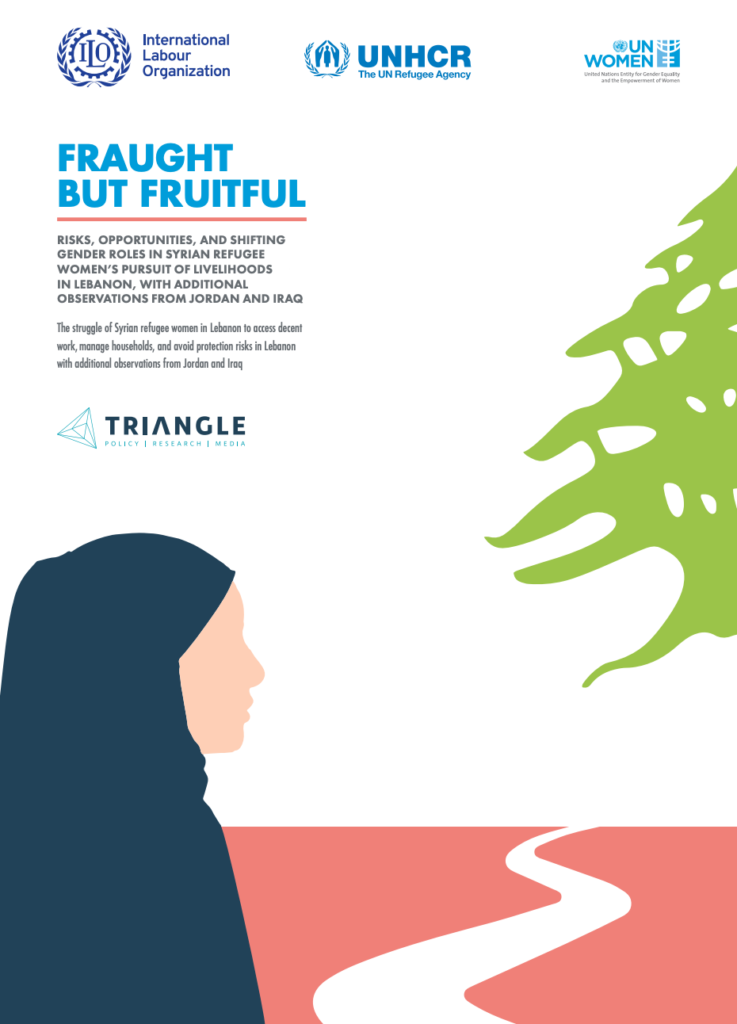The socio-economic plight of Syrian refugees, particularly women, in Lebanon, Jordan, and Iraq has drawn considerable attention due to its complex interplay of gender, economic vulnerability, and displacement. Commissioned by UN Women, UNHCR, and the International Labour Organization (ILO), Triangle conducted a thorough study to explore the nexus between livelihood opportunities for Syrian refugee women and associated protection risks.
This initiative stemmed from an acute recognition of the unique vulnerabilities faced by Syrian refugee women to gender-based violence (GBV) linked closely with their economic hardships. By delving into these issues, Triangle aimed to inform programming designed to mitigate risks while maximizing positive outcomes for these women. The study prioritized a participatory approach, collecting both quantitative and qualitative data driven by the voices of Syrian women, with additional insights from Jordan and Iraq.
The findings revealed that despite the severe challenges including discrimination, lack of formal employment opportunities, and heightened risk of GBV, Syrian refugee women in these regions have encountered opportunities that spur shifts in traditional gender roles and contribute to their economic empowerment. However, these opportunities often expose them to new risks, particularly in informal labor markets which lack adequate protections.
Based on the comprehensive analysis, Triangle put forth recommendations urging a multifaceted approach to support Syrian refugee women. These include the need for more gender-sensitive economic opportunities that align with market demands and local cultural contexts, enhanced legal protections, and greater access to support services that address both immediate and long-term needs of these women. Strengthening institutional frameworks and community support systems were also emphasized to ensure that economic empowerment strategies effectively mitigate the risks of GBV and support sustainable livelihoods. These recommendations aim to guide UN agencies, host governments, and other stakeholders in fostering environments where Syrian refugee women can engage in safe, dignified, and empowering economic activities.
